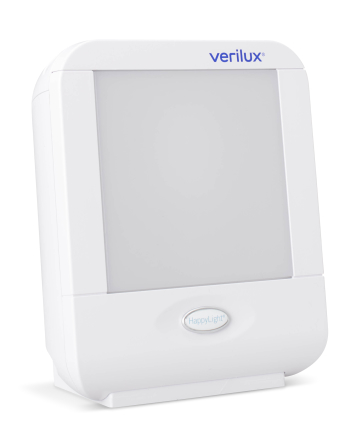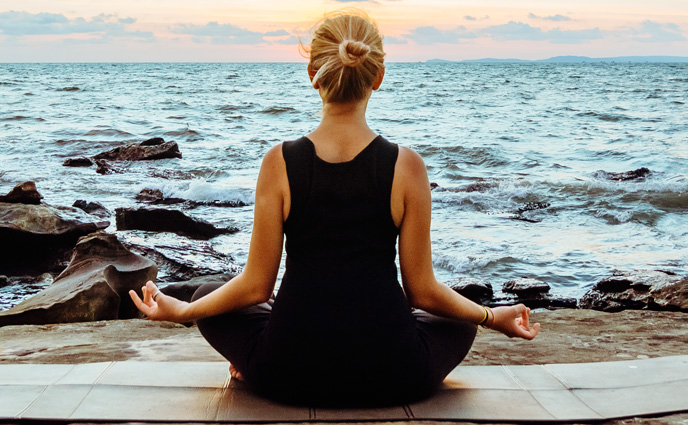If you have a pet, carve out a few hours where you can go for a walk or spend some time cuddled up on the couch together. In fact, research has shown that people are not only happier in the presence of animals, but they're healthier too. One survey of pet owners found that 74 percent reported mental health improvements just by owning their pet. Don't have a pet? No worries. There are endless ways of communicating with animals, be it in nature or by visiting a local shelter. "This is a simple activity that does not take much time, but has great impact on relaxing the mind and shifting negative thoughts," Mendez says.
Image via olaser/Getty
Image via olaser/Getty
A treatment specific to SAD is phototherapy, or light therapy, which involves exposure to a special light that mimics natural light and triggers chemicals in your brain to help regulate your mood, Henderson says. While these devices can be particularly helpful for those with winter SAD, she notes the importance of working with a doctor to ensure that you're purchasing the correct type of light, that you're utilizing it safely and effectively and that you're experiencing the type of depression that will actually respond positively to this type of intervention. "Studies suggest that light therapy is most effective when administered early in the day, and can even disrupt sleep if you are exposed to it too late in the day," she adds.
Try: Verilux Happylight Compact, $135
Try: Verilux Happylight Compact, $135
While you likely know that volunteering to help those in need is a noble way to spend your time, you might not know that it can actually help you the most. In fact, one survey found that the majority of participants reported feeling better both physically and mentally after volunteering. "Participating in programs such as Meals on Wheels, serving food at homeless shelters, volunteering to wrap, deliver or donate gifts to Toys for Tots or giving some time to work at a local community activity such as volunteering to work a local community parade, or working events at churches, synagogues, schools, etc., are all activities that help reduce isolation, increase engagement in purposeful and meaningful activities and provide opportunity to positively impact others' lives," says Mendez.
Image via Hero Images/Getty
Image via Hero Images/Getty
Exercise is beneficial for all types of mood disorders. When you're physically active, especially when you sweat, your body releases feel-good endorphins that naturally boost your mood. Even though it's cold out, make an effort to get outdoors and get moving. "Outdoor exercise is particularly helpful for SAD, or if the weather truly prevents it, get as close to the windows as possible while at the gym," Henderson says. "Studies suggest that aerobic exercise may be more effective at improving mood than stretching or relaxation, but all exercise is good!"
Image via Westend61/Getty
Image via Westend61/Getty
While it might feel like just another thing to add to your to-do list, journaling has shown impressive benefits in the area of mental health, with a particularly positive impact on your mood. "Journaling for about 20 minutes at the end of the day can help alleviate worries and stress," Marsden says. "Furthermore, focusing on three positive things that happened that day can have a positive impact on mood as well."
Image via Hero Images/Getty
Image via Hero Images/Getty









